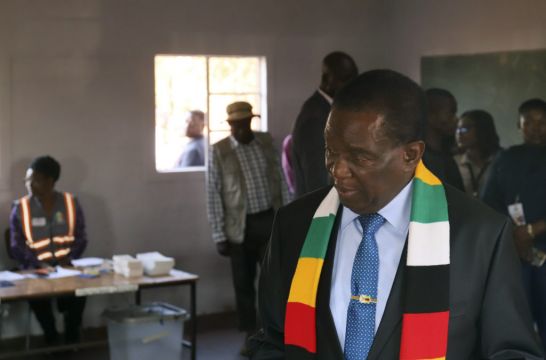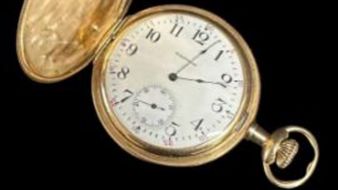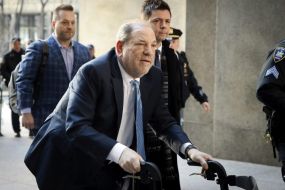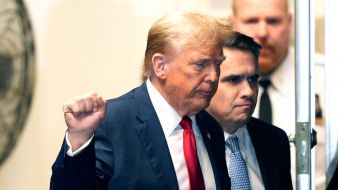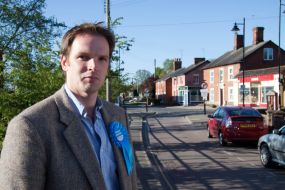Polls opened in Zimbabwe on Wednesday as President Emmerson Mnangagwa seeks a second and final term in a country with a history of violent and disputed votes.
This is the second general election since longtime repressive ruler Robert Mugabe was ousted in a coup in 2017.
Twelve candidates are on the ballot paper, but the main contest is expected to be between 80-year-old Mr Mnangagwa, known as the “the crocodile”, and 45-year-old opposition leader Nelson Chamisa. Mr Mnangagwa narrowly beat Mr Chamisa in a disputed election in 2018.
Mr Chamisa hopes to break the ruling Zanu-PF party’s 43-year hold on power. Zimbabwe has known only two leaders since gaining independence from white minority rule in 1980.
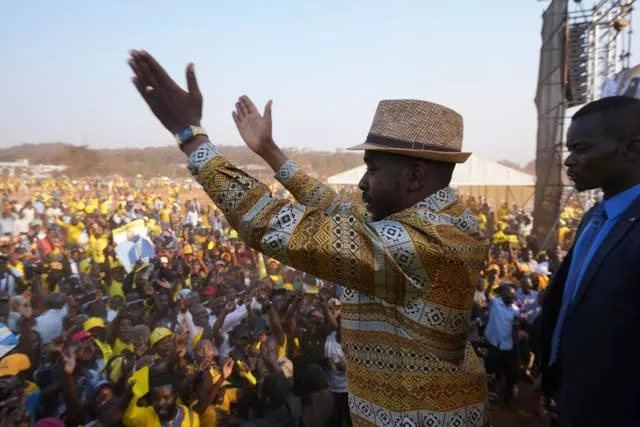
A run-off election will be held on October 2 if no candidate wins a clear majority in the first round. This poll will also determine the make-up of the 350-seat parliament and close to 2,000 local council positions.
In several poor townships of the capital, Harare, some people arrived at polling stations two hours before voting opened, fearing long queues.
“It’s becoming tougher to survive in this country,” said Basil Chendambuya, 50, an early voter in the working-class township of Kuwadzana.
“I am hoping for change. This is my third time to vote and I am praying hard that this time my vote counts. I am getting desperate, so God has to intervene this time round.”
The father-of-three said his two adult children are working in menial jobs and surviving “hand to mouth”.
The southern African nation of 15 million people has vast mineral resources, including Africa’s largest reserves of lithium, a key component in making electric car batteries.
But watchdogs have long alleged that widespread corruption and mismanagement have gutted much of the country’s potential.

European Union chief election observer Fabio Massimo Castaldo told reporters at a polling station in Harare that around 30% of polling stations there had significant delays in opening, often linked to the lack of essential materials, “notably, in many cases, paper ballots”.
Ahead of the election, the opposition and human rights groups including Human Rights Watch and Amnesty International accused Mr Mnangagwa of seeking to silence dissent amid rising tensions due to a currency crisis, a sharp increase in food prices, a weakening public health system, and a lack of formal jobs.
Mr Mnangagwa voted in his hometown of Kwekwe and expressed confidence that he will win.
“If I think I am not going to take it, then I will be foolish,” he said, and encouraged people to be peaceful during the voting period.
Mr Mnangagwa was a close ally of Mr Mugabe and served as vice president before a falling out ahead of the 2017 coup.
He has sought to portray himself as a reformer, but many accuse him of being even more repressive than the man he helped remove from power.
Zimbabwe has been under United States and EU sanctions for the past two decades over allegations of human rights abuses, charges denied by the ruling party.
Mr Mnangagwa has in recent years repeated much of Mr Mugabe’s rhetoric against the West, accusing it of seeking to topple his regime.

Ahead of elections, observers from the EU and the US have come under criticism from officials and state-run media for allegedly being biased against the ruling party.
The Carter Centre, invited by the government to observe the polls, has said 30 members of its 48-member observer team were yet to be accredited on the eve of the elections and any further delay would “hinder its ability to observe polling, counting, and tabulation in many locations”.
Several local human rights activists, including lawyers and a clergyman viewed as critical of the government, have been denied accreditation to observe the vote.
The US State Department has condemned Zimbabwe’s decision to deny accreditation to them and to several foreign journalists.
